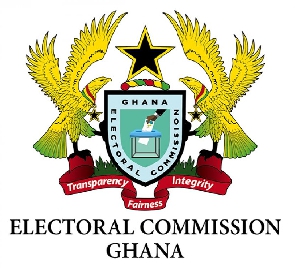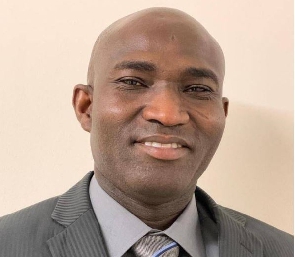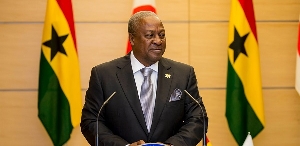The Electoral Commission of Ghana (hereinafter referred to as the EC) is a pivotal governance institution constitutionally mandated to manage and conduct public elections, and to handle issues directly related to elections. The expenses of the EC are funded by the country's Consolidated Fund, in recognition of its critical role in improving Ghana's good governance and representative democracy.
Integral to its core functions, the EC at certain intervals compiles and revises the national voters’ register as may be guided by prevailing legislation. As part of the preparations for the impending District Level Elections, the EC
has scheduled a continuous/limited registration exercise from September 12 to October 2, 2023, to update the voters’ register. The exercise is targeted to capture individuals who have recently attained the age of 18 or are above 18 but for one reason or the other could not register in the 2020 registration.
Surprisingly, despite the significance of this exercise and the fact that the EC expects to register approximately or more than 1,350,000 new voters, it has decided to conduct voter registration only at its 263 District offices across the country, as opposed to the over 38,000 polling centers that the country
currently maintains. The exercise as communicated by the EC, appears to constitutionally, statutorily, and commonsensically violate logic and to some extent the rule of law; it is simply unsuitable and inaccessible to most eligible Ghanaians who have the inalienable right to be registered to vote.
Regrettably, it presents far-reaching implications on individual rights, democratic ideals, and principles of good governance. As one recent study has maintained, the electioneering operations of the EC tend to call into question the credibility and integrity of the Commission concerning its administrative functions.
To add to the voices of the many well-meaning Ghanaians, civil society, political parties, and governance experts concerning the imminent exercise, I discuss how the jaundiced disposition of the EC could have detrimental effects on Ghana’s democratic processes.
First, there are immediate downbeats anticipated to prevail and be seen relative to individual expected participation in the exercise. An obvious one is the
burden of cost which is indirectly but stunningly shoved by the EC, a well-funded state institution, unto the already impoverished masses, most of whom could hardly make 3 square meals a day.
For instance, it is estimated that on average some remote settlements spend as much as GH₵150 on their transportation for commuting to the District capitals. To add more salt to injury, per the current Constitutional Instrument (C.I. 91 as amended by C.I 126) regulating the continuous voter registration in
Ghana, individuals who do not possess the requisite evidence of identification would need two guarantors.
Practically, some persons may have to transport their guarantors to the registration centers with extra cost implications. Besides the already prevailing disappointments in the political leadership, placing much of the financial burden of such an exercise on the youth through the constricted accessibility would unpretentiously give rise to limited interest.
Certainly, despite the cost implications and the possible apathy towards
the exercise, other stakeholder interventions including busing, and the proximity to some urban settlers close to the District capitals would impel some persons from registering; even so, there is the propensity for increased risks, frustrations and chaos resulting from overcrowding and some individuals
possibly not getting registered on their first visits.
Such situations are not to be underestimated especially when previous registrations have been characterized by late arrival of registration officials,
breakdown of machines, poor security arrangements and network failures. There are some unpalatable ramifications of the EC’s absurd execution of the exercise. Primarily, the political parties are the major interest groups of voter registrations. Therefore, in order to protect their interest by mitigating the possible effects of the EC’s inadequacy, the parties would eagerly intervene.
They will ensure that potential registrants are resourced to embark on their journeys through mass movements and busing to the District centers. Indisputably, that nature of political meddling heightens the political tensions especially between the two major parties, the National Democratic Congress (NDC)
and the ruling New Patriotic Party (NPP), profile individuals according to their political alienation, and possibly lead to sparks of violence in certain areas.
Perhaps, more worrying is incumbency abuse where the party in government (NPP) could have access to resources and the financial wherewithal to expediently transport and facilitate the process for their seeming members in their political strongholds. Besides the partisan politics implications with the
possible incumbency abuse, general low turnout could still be anticipated, although predictably affecting some areas than the others.
Furthermore, if care is not taken, the exercise’s pandemonium, centralized control and levels of political interference may produce a distorted and defective register. This is especially true when individuals with diverse community backgrounds and from different polling stations arrive at a registration center where agents and other officials cannot accurately identify them.
Besides, there is the greater possibility of presenting the wrong information about the right polling stations that their residence ought to be assigned to, or travelling to the District Registration Center that they do not belong to due to convenience, proximity and political manipulations.
Indeed, research has established that among the major causes of Ghana’s voter registration challenges in the past few years are too far registration centers, then providing and capturing the right demographic and domiciliary information under such unfamiliar circumstances. As a result, individuals and political actors will lack confidence in the outcome of registration due to the controversies surrounding it, which were generated by the very institution tasked with ensuring its effectiveness.
In sooth, should the EC execute the limited registration exercise as intended without modifications, it will have profound implications for upcoming elections, particularly the 2023 District Assembly Elections and the 2024 General Elections. As iniquitous as this appears, the flawed exercise paves way for voter suppression - to conceivably yield advantage for the party in power, the NPP.
This is because the NPP could have the upper hand to marshal the prerequisite forces and motivations through incumbency abuse to significantly register its members and increase stakes in its strongholds. It implies the crafty
and cunning undermining of civil rights and political processes through institutional incompetence for possible partisan gains.
Again, the nature of the exercise if carried out, as scheduled, could create grounds for gerrymandering and false political representation. The manipulation of political boundaries and voter population is a benign political tool usually employed by incumbents to gain undue political advantage. In the very
manner of the EC’s registration exercise under discussion, some voters would likely be influenced to register in constituencies where they do not reside in. Among the consequences of gerrymandering is the wasted vote effect, where votes might not have truly contributed to a victory, or the ‘false’ movement of votes influencing a loss.
As a way of illustration from the Eastern Region, the Ayensuano Constituency Parliamentary seat was by a slim margin secured by the NDC against the NPP in the 2020 Elections (19, 211 vs. 18, 970 resp.), while the Suhum Constituency that it borders with was secured by the NPP against the NDC with a convincing margin (34,049 vs. 19,192 resp.). To gerrymander for securing both seats for the NPP, new registrants from the Suhum Constituency living on the fringes of the Ayensuano Constituency could be influenced to go and register in Ayensuano, which according to the EC’s planned registration modalities; the gerrymandering would be easily achieved.
This is due to the fact that the movement is less stressful for those located in the former but living closer to the District Capital of the latter, at the same time challenging them could be hard due to difficulties with accurate identification. Similar gerrymandering analysis could be made about the 2020 Parliamentary results for Upper West Akim Constituency with a marginal win for the NPP and the Lower West Akim Constituency with a wider win for the NPP, in which case gerrymandering may be employed to ensure that the NDC does not flip
the Upper West Akim seat.
Beyond the political repercussions discussed above, the posture of the EC could present gross technical and disenfranchising issues that affect transparency and accountability for Ghana’s electoral processes and representative democracy. As reported, one of the EC Commissioners absurdly admitted that due to the constrictive challenges, in the event that people are not able to register, they would be disenfranchised for the District Assembly Elections but would be taken care of thereafter.
Not to mention that, those who could eventually register for example, if care is not taken they will face difficulties in locating which electoral areas their names are assigned. More concerning about those scenarios is even when they find their names but are assigned outside their electoral area; it undermines proper governance and true representation.
Similarly, new voters who for convenience and proximity sake get to register in other Constituencies instead of the Constituency that they are residing would wrongly be represented for both their electoral areas and Constituencies, eventually affecting representation, transparency and adequate distribution
of governance resources. Finally, the reluctance of the EC to properly implement satisfactory voter registration exercise for electioneering activities, related underlying issues, the effects and the implications end up in increasing the lack of trust in proper governance, democratic institutions and governance processes.
The solution to this inauspicious decision, if not for malicious reasons, is a simple one – expanding or rotating the registration centers to serve potential registrants in their own electoral areas. Already, the NDC and other opposition parties have filed a suit against the EC’s intended operation but yet to get a
hearing before even a ruling.
The exercise is just about commencing and likely to continue for many days before the decision. Whatever the outcome, the answerability is incumbent on the EC and its Commissioners to wisely implement the constitutional mandate granted them in a sound rather than negligent discharge of responsibilities in enhancing the country’s democratic and governance ideals.
Click to view details



Opinions of Tuesday, 12 September 2023
Columnist: Evans Tetteh



















